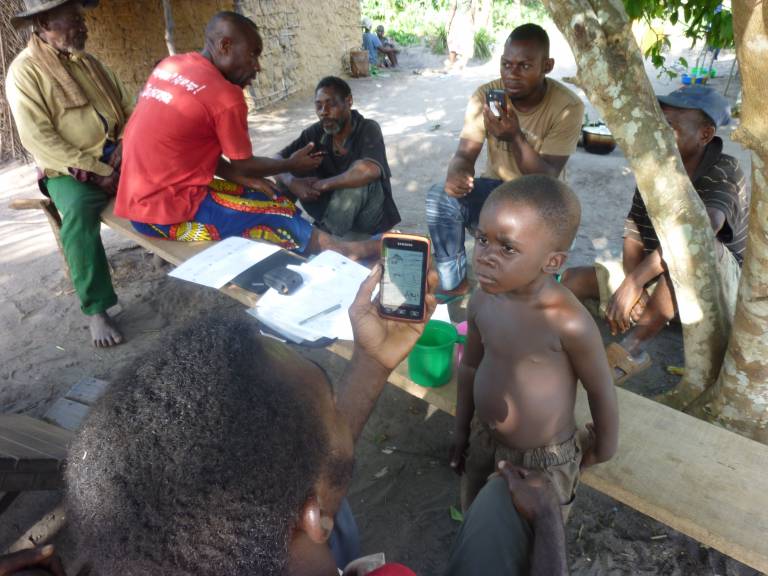Involving indigenous communities in research to support sustainable forest management
A UCL team is empowering indigenous communities across the world to engage in conservation activities by co-designing mobile-phone apps to document and address environmental issues they identify.

17 August 2022
Forests are under threat in many parts of the Global South, often in areas where indigenous communities have lived for thousands of years. Although many conservation programmes are underway to protect and manage such areas, they often evict local communities and ignore the traditional ecological knowledge (TeK) held by local people.
A team at UCL led by Professor Muki Haklay (UCL Geography) and Dr Jerome Lewis (UCL Anthropology) has developed the ‘extreme citizen science’ (ECS) approach to support the application of TeK to address environmental issues, with a focus on forest communities in Central Africa’s Congo Basin.
Central African forest hunter-gatherers have been custodians of the forests for thousands of years and possess an intimate and unrivalled knowledge of the forest’s plant and animal species. However, like other indigenous people, their lack of formal western education or familiarity with modern technologies often leads to them being ignored in research.
“Citizen science usually means that a researcher has a question, and they ask the public to help them answer it,” explains Professor Haklay. “But it can also mean that an individual, or community, identifies a question or problem that science can help them solve – and a scientist might come to help them. The latter is what we call ‘extreme’ citizen science.”
““Participating communities have told us how empowering it is to be able to share their environmental knowledge with those that are responsible for the issues they identify.”
In collaboration with EU researchers and indigenous peoples, UCL’s interdisciplinary Extreme Citizen Science (ECS) research group co-developed a new mobile-phone app called Sapelli, which uses icons instead of text to enable non-literate people to collect information. The data is then visualised on a map.
The ECS group developed an innovative approach to deploy these digital tools to support any community, regardless of literacy or familiarity with technology to design and conduct their own environmental research. Supported by the ECS team, communities develop bespoke data collection apps and an advocacy strategy to address the issues that they documented in their local area.
Sharing this knowledge has resulted in seizures of illegal wildlife products, arrests of poachers and traffickers, the identification of illegal logging and animal corridors outside of protected areas, the documentation of human rights abuses, and the creation of protected community reserves.
“Participating communities have told us how empowering it is to be able to share their environmental knowledge with those that are responsible for the issues they identify,” says Dr Lewis. “They value being taken seriously and want to be more involved in local environmental management of their traditional areas.”
“These tools mean forest people are included in research activities and their unique local knowledge contributes to the sustainable management of our global environment,” adds Professor Haklay.
The data collected in ECS surveys have enabled forest communities to protect their local area, contribute vital information for the better management and conservation of these regions, and reduce the discrimination they experience from officials and dominant populations.
The open-source system has also been used to improve environmental management in over 20 countries including DR Congo, Namibia, Kenya, India, Cambodia, and the Brazilian Amazon.
 Close
Close


